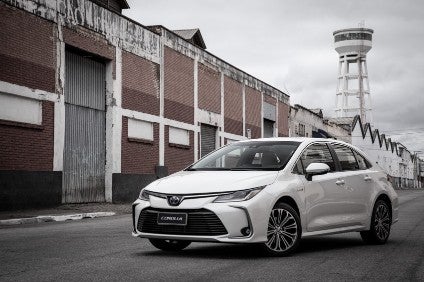
In line with the sluggish recovery of the Brazilian economy – this year’s GDP is expected to grow 1% maximum, according to late forecasts – the Brazilian auto industry will also achieve poorer results than expected for the year.
Comparing first half 2019 to H1 2018, the domestic market grew 12%. Compare the first nine months instead and growth was 9.9%: 1.846m to 2.029m light and heavy units.

Discover B2B Marketing That Performs
Combine business intelligence and editorial excellence to reach engaged professionals across 36 leading media platforms.
Yet this was the best result for that period since 2014 and ahead of full year 2016.
Once again the truck sector was the best performer with 40.7% growth. It reached full 2018 volume in nine months.
September was this year’s second best month for daily sales average, reflecting the second half’s customary auto sector rise. The 234,848 units shifted last month was a 10.1% year on year rise over September 2018’s 213,339.
Vehicle production in September peaked at 247,333 units from 223,081 in the same month of 2018 (a 10.9% jump).
Exports of fully assembled vehicles in September, nonetheless, dropped 7.1% to to 36,640 units from 38,451. Sales to other countries from January to September also declined 35.6% year on year.
According to national automakers association Anfavea, total domestic sales should reach an estimated 2.8m light and heavy units, up 9.1% over 2018.
The positive highlight will again be the heavy truck sector, a 35% rise year on year, to pass the 100,000 sales mark – a level not attained since 2014.
Yet production is expected to grow a lot less due to the 33.2% export slump sparked mainly by the Argentina economic crisis.
A small 2.1% increase over 2018 is the best hope and will be the third consecutive year of recovery, albeit quite modest.
“Our economists’ recalculation shows 85% of the production downfall was due to falling exports to our Argentine neighbours,” said Anfavea president Luiz Carlos Moraes.
“Most importantly is to keep growing, for three years in a row, both domestic market sales and production, with good expectations for 2020,” he added.
The direct impact on employment is the nasty downside of the export slump.
From January to September, 4,500 jobs were lost, that is 3.4% axed. The total auto industry employs 129,938. A significant portion of this was at the Sao Bernardo do Campo, in greater Sao Paulo, where the Ford manufacturing plant shut down after 62 years. The Fiesta and trucks were produced there.
Last month the Brazilian group CAOA’s interest in taking over this Ford plant was confirmed in order to keep producing light, medium and heavy Ford trucks.
Rumours even suggested that Chinese automaker Changan would produce passenger cars or SUVs jointly with CAOA in the factory.
The Brazilian group has a manufacturing operation in Anapolis, in the mid-western state of Goias, which builds Hyundai mid-size SUVs and light trucks, together with Chery mid-size SUVs.
This factory is entirely owned by CAOA, which also produces a Chery crossover and a sedan in Jacarei, in the greater Sao Paulo area. CAOA has purchased 50% of this plant – which has 80% surplus capacity – from Chery.
In September three entirely new Brazilian made models were launched: the 12th generation Toyota Corolla, including the world’s first flex-engine hybrid option, the second generation Hyundai HB20 family, exclusive to Brazil, plus the new Chevrolet Onix Plus, a compact sedan with GEM architecture and a naturally aspirated and turbo three-cylinder, one litre engine.






